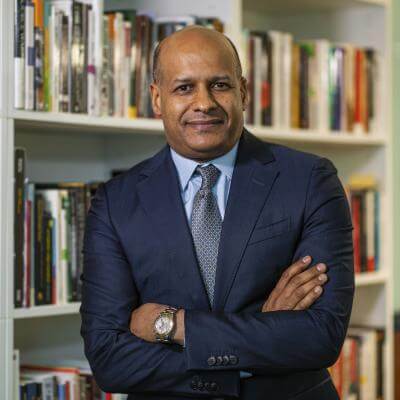Institutions under Stress: Covid-19, Anti-Internationalism and the Futures of Global Governance
Crises facilitate change: they remove obstacles which, in normal times, sustain the status quo. They often strengthen existing trends which may have been slowed down by institutional inertia or political resistance. An event of the magnitude of the Covid-19 crisis is likely to entail serious consequences in domestic as well as international politics. What are its implications for global governance? Which tendencies is it going to reinforce, which ones will it weaken?
One of the defining trends of the past decade has been a growing anti-internationalism in many parts of the world. Anti-internationalism has become fashionable on both sides of the traditional political spectrum, but especially on the right. “[Country x] first!” has become a popular battle cry, and it has led to the closing of borders to refugees, the repudiation of free trade in favour of protectionist policies, and the challenging of a wide range of international institutions. Institutions as diverse as the WTO, the European Court of Human Rights, the International Criminal Court and the European Union have become the target of national(ist) governments and political parties.
Anti-internationalism typically comes in a package with broader populist and anti-liberal attitudes. The populist turn can be explained in a variety of ways – as a reflection of economic insecurity, a reaction to cultural shifts, a pushback against government institutions perceived as unresponsive and out of reach, or a combination of these. It certainly is a response to the radical changes brought by globalization and the reconfiguration of state and society over the past few decades, which have left many with the impression that government is no longer ‘theirs’.
Much of today’s populist momentum can be traced back to the financial crisis of 2008, and the current epidemic is likely to further strengthen it. With record unemployment and a lengthy recession looming, economic insecurity will rise substantially. Governments burdened with high levels of public debt, augmented by ongoing rescue and stimulus operations, will have ever fewer resources at their disposal to counteract this insecurity. And although many people initially turned to the state for guidance, dissatisfaction with the state has grown as the crisis has persisted, with increasing attacks on politicians and experts supposedly making lockdown decisions without regard for ‘ordinary’ people. Populist leaders have sought to exploit this anger and promised to ‘liberate’ the people from excessive restrictions.
Anti-internationalism has also been fuelled by a widespread sense that the threat of the virus originated abroad, and that isolation from the world is the best answer. Dissatisfaction with the state has grown as the crisis has persisted The sudden move to close borders, including those that had long existed merely on paper, signals that countries are perceived as better off dealing with the crisis on their own and that foreigners, including and especially refugees, are perceived primarily as a risk to be kept out or quarantined. Likewise, the crisis has laid bare the fact that open markets, long taken for granted, generate dependencies that are not easily reversed. The dependence on China even for the production of face masks, let alone basic pharmaceutical products, brought home to many the potential vulnerabilities generated by a global distribution of labour.
INCREASING ANTI-INTERNATIONALISM COMES AT A DIFFICULT TIME FOR INTERNATIONAL ORGANISATIONS
All this exacerbates the difficulties international institutions are already facing. Many governments, even those with an interest in international cooperation, are vulnerable to challenges from populist movements if they back international organizations. This weakens existing organizations and complicates new initiatives. Populist governments themselves are meanwhile withdrawing their countries’ support, reducing funding and seeking to block new endeavours, such as the Global Compact for Migration. Institutions expressing liberal values – the promotion of human rights and democracy or the protection of refugees and migrants – are likely to be especially affected by this backlash.
The broader challenge for global governance has been most visible in the US decision to stop funding and cooperating with the WHO. The general anti-internationalism of the Trump administration is further illustrated by its allegation that the WHO has favoured China during the crisis.The growing rivalry between the two great powers is leading to a reinterpretation of international politics as a zero-sum game The growing rivalry between the two great powers is leading to a reinterpretation of international politics as a zero-sum game, in which gains on one side are immediately perceived as losses on the other. International organizations – typically built on the idea that cooperation generates benefits for all – consequently face defiance and skirmishes over distributional issues. The dispute over the Universal Postal Union over the past years foreshadows the structure of such battles – the US, seeing China as excessively benefitting from existing rules, threatened to pull out of the organization, reversing course only after protracted negotiations and a compromise that left the UPU heavily damaged.
Anti-internationalism presents a particular risk for global governance, coming as it does at a point when cooperation through international organizations is already debilitated for other reasons. The global shift of power from West to East, as well as the mobilization of emerging economies such as the BRICS, has been calling into question Western hegemony in international institutions since the 2000s. This has led to blockage, as in the WTO’s Doha Round; or to half-hearted reforms that leave everyone unsatisfied, as in the case of the World Bank and the International Monetary Fund. Western countries have shown little willingness to give up their privileges, struggling to understand that continued cooperation depends on their disposition to make compromises — including painful ones. The EU’s reluctance to commit to negotiations on a treaty on business and human rights – despite a generally internationalist orientation of the European Commission – is a case in point.
FOR MULTILATERAL COOPERATION, THE OUTLOOK IS BLEAK
Faced with these challenges, we are likely to see continued stagnation in the creation and development of international organizations and the conclusion of new treaties – a trend we have already been observing since the turn of the millennium. Anti-internationalism and power rivalries breed stalemate and limit what existing institutions can do. New efforts for cooperation are also less likely to succeed, especially when they come with significant sovereignty losses, which in turn constitute easy targets for populist attacks.
New initiatives may prove more successful when working through smaller groups of states and relying on informal tools rather than formal organizations or treaties – as corroborated by recent history. Anti-internationalism and power rivalries breed stalemate and limit what existing institutions can do Such efforts may often involve – partially or exclusively – private actors. Ever since the turn to economic liberalization and globalizing markets, the weight of the state relative to private actors has declined in many countries. This decline is likely to be accentuated as a result of the crisis, with public entities in enormous debt and (some) businesses emerging stronger. As inter-state cooperation is often difficult or blocked entirely, private or hybrid public-private forms of regulation and governance may expand yet further.
In the long run, the Covid-19 crisis is thus likely to lead to a weaker – and heavily transformed – structure of global governance. Anti-internationalism, power rivalries, and the shift from public to private jointly present a serious risk for an institutional model based on common, universal institutions for inter-state cooperation. Yet things do not necessarily have to turn out this way. Crises present openings for change in many directions; as they unsettle existing structures, they also create space for new beginnings. With their backs to the wall, actors may realize the need for more, rather than less, international cooperation, and they may overcome hurdles that previously seemed insurmountable. The shift in EU debates about a joint rescue and stimulus programme is one example, the mobilization of many governments in favour of the WHO another. Turning this momentum into a sustained improvement in global governance structures will be an uphill battle. But imaginative efforts with ambitious goals, bringing together like-minded actors and broadening the group of participants over time, may still yield important results. In the current storm, international cooperation needs active and determined support, or it will face gradual or even sudden decline
Confederation billions to save the Swiss economy | PODCAST with Cédric Tille
Research Office, The Graduate Institute, Geneva
Peut-on comparer la grippe espagnole et le Covid-19? VIDÉO avec Davide Rodogno
Graduate Institute, Geneva et Heidi.news
What hope for the environment? PODCAST with Joëlle Noailly
Research Office, The Graduate Institute, Geneva
PODCAST | The violent consequences of the Covid crisis in India, with Rahul Mehrotra
Research Office, The Graduate Institute, Geneva
New technological tools: a plus for democracy? PODCAST with Jérome Duberry
Research Office, The Graduate Institute, Geneva
Latin America and the Covid-19 crisis | PODCAST with Yanina Welp
Research Office, The Graduate Institute, Geneva
An Indonesian democracy at risk | PODCAST with Jean-Luc Maurer
Research Office, Graduate Institute, Geneva
Democracy in coronavirus times | VIDEO with Shalini Randeria and Ivan Krastev
The Graduate Institute, Geneva (Excerpt of the podcast series “In Conversation With“)












